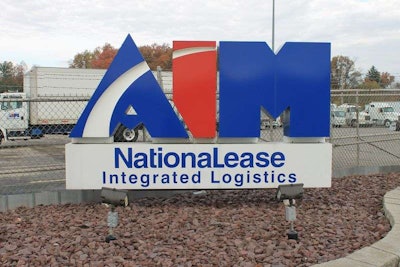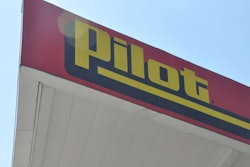 AIM Transportation Solutions recently conducted a weeklong training event for all of its business divisions, which include equipment leasing and dedicated contract logistics.
AIM Transportation Solutions recently conducted a weeklong training event for all of its business divisions, which include equipment leasing and dedicated contract logistics.Some phrases are repeated so often they become dogma in the business world. For instance, you might already know what a fleet owner will say if asked, “How do you build a safety culture?”
The answer: “It starts at the top.”
A safety culture may indeed take a top-down directive for change to happen, but any effort will be short-lived without engaging middle managers and front-line workers and getting them to speak the same language.
A top down, bottom up approach to safety
Last week, AIM Transportation Solutions completed a Safety Week that involved all 1,100 of its employees. The Girard, Ohio-based company plans to continue the tradition next year and beyond.
AIM operates a full-service equipment leasing business, AIM NationaLease, with more than 12,000 power units leased to fleet customers. It also has AIM Integrated Logistics that operates dedicated fleets for shipper customers.
The Safety Week began with a directive from the top. Scott Fleming, co-president, got the idea from the Marines where he served in Iraq as a platoon sergeant. He once participated in a week-long training event during a stand-down period where he shared daily safety messages, one-on-one, with members of the platoon.
Ron Bourque, vice president of safety, was put in charge of organizing AIM’s Safety Week. He put together some daily talking points for managers to train employees. Each day of training covered a different core value of AIM’s safety department: trust, accountability, commitment and integrity.
This was not the first time that company leadership talked about the core safety values, but it was the first training done about them. Bourque compares the four values to the legs of a table, where “you can’t support a culture without all four.” You cannot build trust or expect to be given trust, for instance, without having integrity. He also compares the safety values to bank deposits and withdrawals.
“All are an investment in our culture, but every time someone makes a decision against the values it is a withdrawal,” he said. “We don’t own this account. You don’t have a right to make a withdrawal.”
He instructed department managers to adapt the talking points to their respective areas. Dispatchers, for instance, adapted the training about integrity to drivers and service managers adapted the training for safety concepts to mechanics.
A service manager could explain integrity using a torque wrench to fasten lug nuts as an example. An impact wrench may torque a lug nut to 99.99% accuracy, but a mechanic who uses a torque wrench wants to ensure the work is done correctly even if nobody is watching.
The managers conducted the training with all employees who report to them individually via 10- to 15-minute conversations each day.
Creating authenticity
Getting all employees involved was a big undertaking for AIM with its 54 equipment service centers and more than 400 drivers spread out over the country. Managers handled their own meeting logistics. Dispatchers, for instance, conducted one-on-one training calls with drivers by phone when they gave daily load assignments.
Bourque said he could have written individual talking points for the shop, office, drivers and other departments, but wanted to “harness the power of our brains in the field. I wanted it to be from the heart.”
“We put a lot of trust in our people to make up their own training,” he explained. “We trusted them to use their heads, their own talents and experiences to relate to their employees.”
After the training was complete, AIM collected signatures to use on banners that will be printed and hung in shops and other locations to remind employees of the commitments they made during Safety Week 2020. He hopes the banner will help the conversations to continue.
“We are really working hard on building the vocabulary and ideas into our daily language to further the culture,” he said.
Above all else, Bourque said he hopes the training exercises showed managers and employees that the company trusts them.
“Trust is the foundation to make all of these things work,” he said. Without trust, a slogan such as “if you see something, say something” is nothing more than a slogan. Drivers and mechanics cannot be expected to report unsafe behaviors to managers unless they trust that managers have a commitment to safety and the integrity to follow through.
“The worst thing we can do is not follow up and start violating trust,” he said.




![Prime Utility 3000R Reefer[3]](https://img.ccjdigital.com/files/base/randallreilly/all/image/2014/10/ccj.Prime-Utility-3000R-Reefer3.png?auto=format%2Ccompress&fit=crop&h=167&q=70&w=250)






